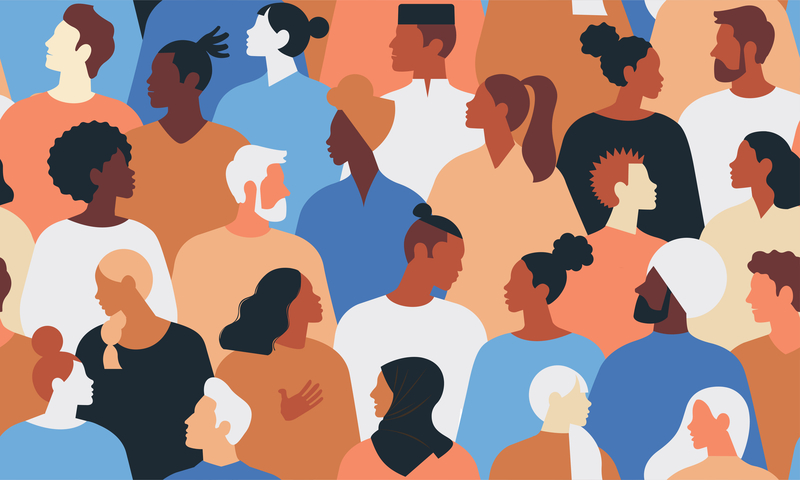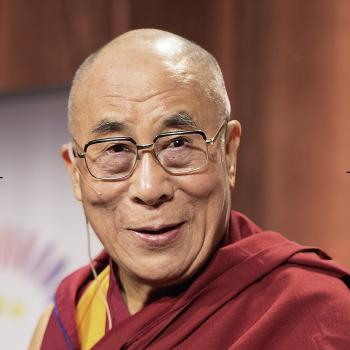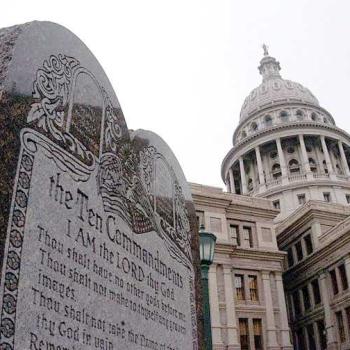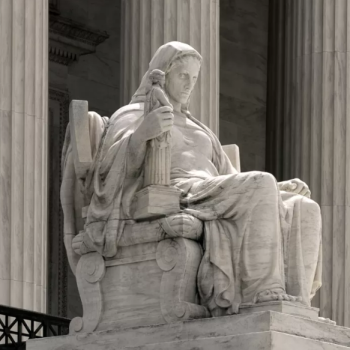Why are there more nones? The “nones,” you probably know, are people who have no religious affiliation. They may be atheist, agnostic, or “nothing in particular.” A half century ago, nones were about 5 percent of the U.S. population. Now they are nearly 30 percent. Why is this happening?
The Pew Research Center has been tracking religious affiliation in the U.S. for several years, and recently Pew affirmed that “nones” are the single largest religious demographic in the U.S. They are 28 percent of the U.S. population. The next largest groups, evangelical Protestants and Catholics, are 24 percent and 23 percent, respectively. PRRI (Public Religion Research Institute) has had similar findings.
Going further back, we find that in 1900 or so Christians were 90 to 97 percent — sources vary — of the population of North America. As recently as 1972 polls were finding that about 90 percent of U.S. citizens identified as Christian. Today, according to Pew Research, about 63 percent of Americans identify as Christian. In a few decades, Pew says, Christians could be less than 50 percent of the U.S. population. From what I can tell from raw data, most of the population subtracted from Christianity was added to nones, although PRRI data show a slight increase in “other world religions.” What’s going on here?
Who Are the Nones?
Nones are not a uniform group. According to Pew, 17 percent of nones identify as atheist, 20 percent as agnostic, and 63 percent as “nothing in particular.” Most of the latter group do believe in God or some sort of “higher power” or spiritual force. Many call themselves “spiritual but not religious.” However, they also express skepticism of specific religious doctrines; they appear to like their higher powers to be fuzzy and generic.
Most of the nones surveyed by Pew say they were raised in a religion, usually Christianity. But they tend to resist getting involved in religious institutions. Some of them are hostile to “organized religion,” but not all. Some nones just want to work things out for themselves. Overall, they are mostly less interested in religion than people who are affiliated. Note that the percentage of the U.S. population that identifies as atheist hasn’t seemed to change much at all in recent years.
In past surveys Pew has also found that nones “are not looking for a religion that would be right for them. Overwhelmingly, they think that religious organizations are too concerned with money and power, too focused on rules and too involved in politics.”
Why Are There More Nones?
This is a history blog, so perhaps the answer to “why are there more nones” lies in recent history. And perhaps it’s part of a larger trend. Nones are, on average, “less likely to vote, less likely to have volunteered lately, less satisfied with their local communities and less satisfied with their social lives,” Pew found. Perhaps the real story is a growing alienation from community and culture. Religious affiliation is one measurable aspect of that, but perhaps it’s not the whole story.
Another explanation is that perhaps it is becoming more socially acceptable to admit to being unaffiliated. Perhaps Americans aren’t really less religious, but are just being more honest about not being religous. In 2022 Pew noted that the label “unaffiliated” is getting “stickier.” “Until recently, Christian identity was stickier than unaffiliated identity,” Pew noted. In the past, people raised Christian were more likely to continue to identify as Christian than people raised without religion to continue to be unaffiliated. But now, among younger adults, “the unaffiliated identity has become the stickier one.”
Other possible factors:
The increase in two-income families. The working parents of children may feel a bigger need to rest or catch up on chores on Sunday rather than spruce up to go to church.
Televangelism. I’ve sometimes wondered if televangelism, with its obvious hucksterism and occasional flaming scandal, is driving more people away from Christianity (and religion generally) than bringing people to Christianity.
Increasing autonomy. A Swiss sociologist named Jörg Stolz believes the decline in organized religion, in Europe and North America, is pointing to growing autonomy in society. People are less likely to look to authority figures (like preachers) for answers.
I’m a bit skeptical about that last explanation, though. Enough people seem to be looking to political and media figures for answers these days. Maybe more people are finding their sense of purpose and belonging in mass movements like MAGA and QAnon.
Where Does Religion Go From Here?
I don’t think religion is going to go away, but perhaps religious affiliation will become more fluid. Perhaps it will become easier to explore different religious traditions and even change affiliations without existential angst. Increasing diversity might challenge religious institutions to become more relevant to congregants’ spiritual needs and more invested in maintaining community.
I personally would like to see a movement away from rigidly literalist and dogmatic religion and toward religion that illuminates our lives and hearts. Part of the problem may be that too much of religion is trying to apply Iron Age ideas about morality and society to 21st century life, and it’s not working. And it would be really great if we could get away from the idea that religion is about believing things. I’d like to see us go back to an earlier understanding that religion is about how we live our lives. But maybe that will be another post.














